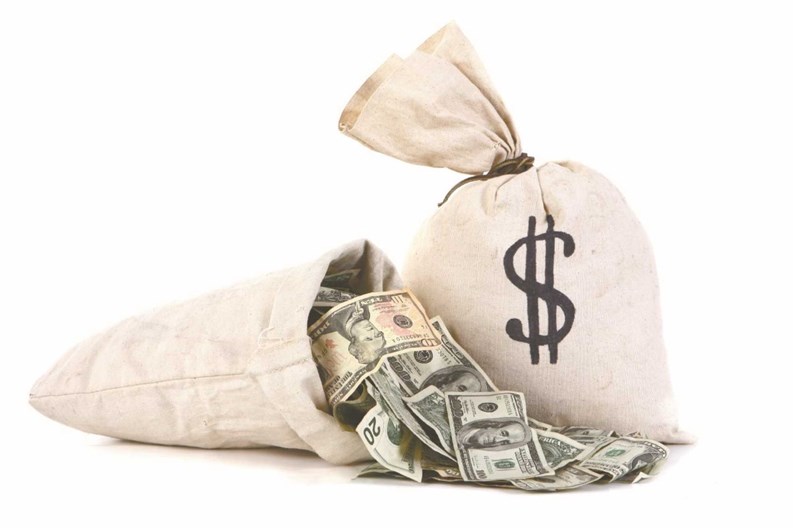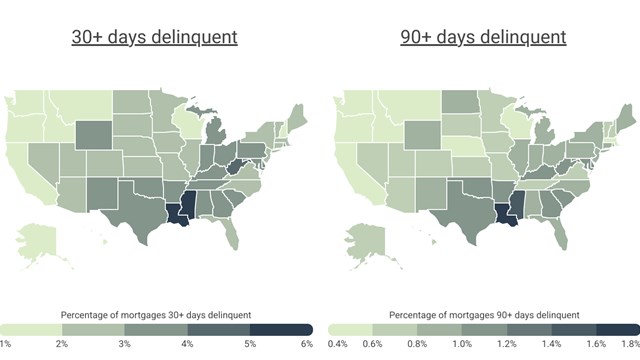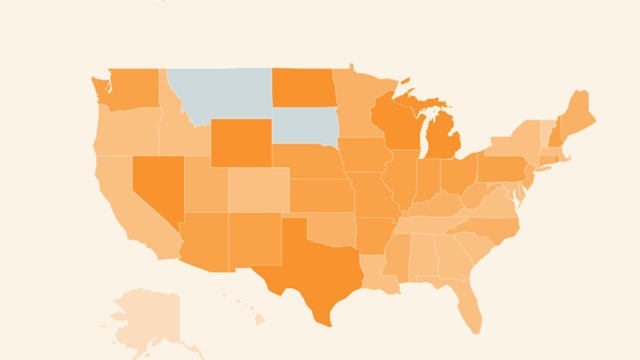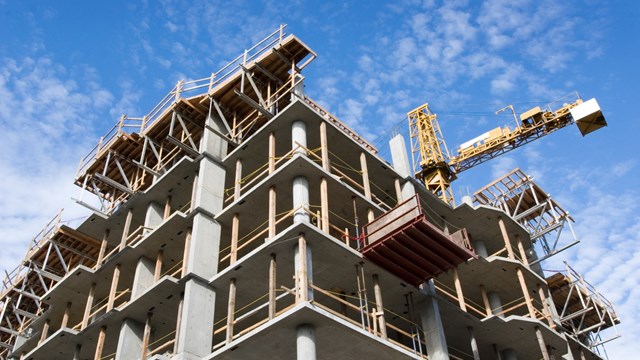Everyone is feeling the crunch of the ongoing recession and as building communities look for ways to raise revenue without adding to their residents’ current financial worries with large assessments, flip taxes are becoming a hot topic.
In New York City, many co-ops already have a flip tax in place in order to gain needed revenue. A flip tax or transfer fee is money paid by the seller that goes back to the co-op each time an apartment is sold. Although some condominiums do have a flip tax, it is not very prevalent because of the laws governing ownership in condos.
“Originally people didn’t like the idea because it means sharing your profit with the cooperative but they have come to realize it’s the best way to keep the financial health of a cooperative strong and protect those who are remaining as shareholders,” says Sandra Jacobus, an attorney with the Manhattan-based law firm of Ganfer & Shore LLP. “There have always been some flip taxes around but more recently shareholders have realized it’s a way to get some income for the cooperative without having the shareholders having to increase cash flow.”
Although there is no defining number of co-ops that currently employ a flip tax in their building, a study done by the Manhattan law firm Stroock Stroock & Lavan a few years ago estimated that nearly 60 percent of co-ops in New York have a flip tax in place.
“A flip tax is an imposition on a sales price of an apartment,” says Edward Braverman, a senior attorney for Braverman & Associates PC. “I believe it was regressive and inappropriate. Most buildings found it an easy way of raising money without the necessity of having assessments.”
Many co-ops have flip taxes built into their original governing documents but those that don’t are finding it’s not easy to get them instituted in today’s economic environment.
In The Beginning
According to Eric Goidel, an attorney with Borah Goldstein Altschuler Nahins & Goidel PC, flip taxes were first established in the late ’70s when a hot-bed of co-op conversions became the in-thing in New York.
“The origin of a flip tax was to take advantage of initial purchasers who were insiders living there as rent-stabilized and being offered a chance to buy apartments at substantial discounts,” Goidel says. “During that time, sponsors enticed existing rental tenants to purchase their apartments at a steep discount and those who did would often resell or “flip” their apartments at market price for a nice profit. This was a way to gain a portion of their profit.”
Initially flip taxes were geared towards the initial purchaser only, but many buildings have flip taxes built in on all future sales as well. This helps the co-op raise money.
“In a co-op, I think flip taxes are wonderful because you can do certain things. You can raise capital and cash reserves without affecting the day-to-day budget and maintenance, says Luigi Rosabianca, principal attorney and founder of Rosabianca & Associates. “It’s only affecting people who are leaving.”
Making the Change
Because of the conversion boom, many co-ops instituted flip taxes right off the bat in their governing documents, but for those that didn’t, it’s not always easy to institute them now.
“They are either in the offering plan or they are in the proprietary lease,” says Jacobus. “In order to institute a flip tax now, you have to amend the proprietary lease. It can’t be simply a house rule.”
Typically that means you are going to need a super majority of the shareholders voting for it, and that normally requires a 2/3 vote in favor or 75 percent.
“As a result, it’s a very difficult item to get passed because of the fact at any given point in time, there are a number of people looking to sell their apartment and they don’t want to be the first ones to have to pay a flip tax to the building,” Goidel says. “You automatically start out with a certain amount of people who are not in favor of it, plus you don’t always get 100 percent of people voting so it’s often impossible.”
Buildings that have been successful with adding a flip tax after the fact happen when the sponsor still owns a significant percentage of shares because the sponsor is exempt from paying a flip tax and will typically vote in favor of them.
A flip tax can be calculated in different ways. Some are a percentage of profits, someone on a share basis, while others are simply a percentage of the sale, usually somewhere between 1-3 percent. The shareholders decide and it must be the same for everyone.
The flip tax is distributed at the closing when there is a transfer of shares from the seller to purchaser and a check is made out to the apartment corporation.
Pros and Cons
When looking at the benefits that flip taxes can provide, it’s surprising that people are against the, They not only help a building with liquidity, but they keep maintenance charges down, create the need for less assessments and it lessens sales, helping the building to become less transient and more neighborly.
“The biggest thing is that it increases your reserve fund,” Jacobus says. “Buildings always need to make repairs to structure, roof, boilers, all kinds of things like that and every building will have to deal with this at one time or another. Most buildings don’t have enough of an excess to save up for this kind of repairs so this is a great way to increase the reserve fund. It keeps a co-op strong and existing shareholders are not assessed.”
With the economic climate we have today normal expenses are expanding, insurance rates and property taxes are going up and maintenance increases have been very common. It’s no wonder that those buildings without the flip tax are looking to add them in.
“People are always going to vote for their self interest financially,” Goidel says. “If there’s a strong education process to show people the merits of the flip tax, they may be more inclined to do it. It’s well maintained and therefore should help defray cost of future capital improvements. If they don’t go for a flip tax, there’s generally a great need for a building to have assessments for capital improvements. Sometimes people can be convinced to pay extra money.”
On the negative side, sale prices are starting to go down and it will be harder for a seller to swallow losing a percentage of the sale, especially if they are already taking a loss.
“The drawbacks are you’re not going to make as much and you are moving out so why would you care about your former neighbors? Also, the reality is if you bought last year and need to sell, you probably aren’t making a profit and when you add in closing costs, the flip tax will cost you money if it’s a percentage of the sales price,” Jacobus says. “
Also, many argue that it’s not a fair system as someone who has been there for 15 or 20 years will get the benefit of multiple payments from other apartments that have turned over multiple times, so it’s not an equal way of dividing the costs to running a building.
Condo Cases
A majority of condominiums in the state are now considering instituting flip taxes also. And why not? They can bring in money and might help a condo board to reduce common charges like maintenance fees. But many believe that they will never take off the way they have in co-ops.
“Flip taxes are less prevalent in condos simply because they were not in original bylaws and it’s very difficult to change them,” says Rosabianca. “People don’t buy into condos to have rules and regulations, but it’s a wonderful way to raise cash reserves.”
Goidel believes that flip taxes run counter culture to the concept of condominiums and that’s why you won’t see them too often.
Legal Issues
Currently there is no government office that monitors flip taxes, but that doesn’t mean that people aren’t aware of their rights when it comes to paying the transfer fees.
“There are a number of flip taxes challenged because they are not implemented properly,” Goidel warns. “There are co-ops in the city that have flip taxes that were improperly adopted. I’ve seen it challenged when the proper mechanism wasn’t in place.”
That causes issues because then you have to figure out what to do with flip taxes going forward and you have to revisit financials with people who have already sold and paid their flip taxes.
Final Thoughts
Until very recently, real estate in New York has been a phenomenal investment and the idea of paying a small percentage of a sale’s price wasn’t really that big a deal.
“It’s a way of giving back to your community and develops more of a sense of neighborhood because people aren’t looking to move every year,” Rosabianca says. “One important thing is that I think it’s very important for purchasers in their due diligence to be aware what the flip taxes are so when they go to sell, they aren’t surprised by it.”
Co-ops that started with flip taxes, still have them, those who tried early to put them in and had the high sponsor percentage were successful, nowadays with the economic climate the way it is, it’s going to be hard.
“Now when you ask people to contribute to the cost of running a building on the way out, it will be disproportionate to the users enjoyment of a building,” Braverman says. “Things aren’t getting better in New York City and the ability to sell an apartment and at least sell it for a profit is becoming increasingly more difficult and there will be increasing stock of apartments on hand in the summer, in Manhattan especially. There will be an uproar from people who lose $150,000 and you ask them to contribute more for a flip tax.”
Keith Loria is a freelance writer and a frequent contributor to The Cooperator.







5 Comments
Leave a Comment